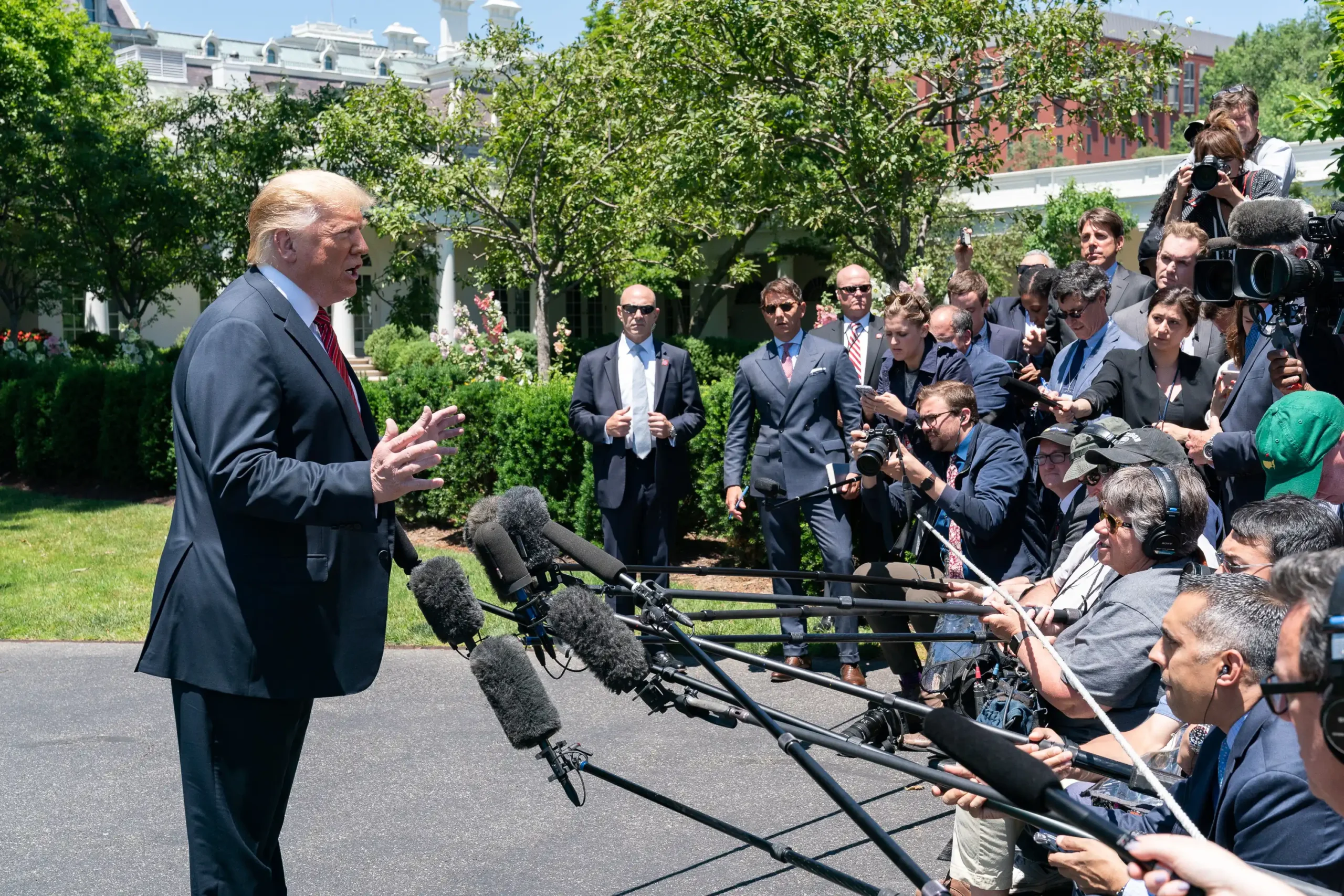Five ego-busting tips for stronger leadership

Andrew Horn
- Published
- Opinion & Analysis

Ego-driven leadership leads to burnout and breakdown, warns our health and wellbeing correspondent, Andrew Horn. These top five tips will help managers lead with purpose – not pretence
In business, we’re often encouraged to “build our personal brand”, stand out from the crowd, and take credit for our work. But there’s a fine line between confidence and ego — and when leaders cross it, teams suffer.
Ego-driven leadership is characterised by dominance and a distinct lack of empathy. In such environments, decreased productivity, high staff turnover, and diminished employee well-being are common results.
So losing the ego’s no bad thing. If there’s one sobering stat to immediately start puncturing that inflated self-worth, it’s this: According to a 2024 report by the Chartered Management Institute (CMI), only 27% of UK employees describe their managers as highly effective.
Ouch!
Thankfully, Hindu philosophy provides all we need to get our feet back on the ground and become more effective leaders.
There’s a powerful concept that can help us rethink leadership from the inside out. It’s called aham-kara — the false ego. In Sanskrit, aham means “I” and kara means “maker”. Together, aham-kara refers to the identity we create around ourselves — a self-image often shaped by job titles, public recognition and status.
Titles such as ‘CEO’, ‘director’, or ‘founder’ may reflect real achievements, but if we mistake them for our true self, problems arise.
Letting go of these constructs doesn’t make you weak. It makes you wise.
The Bhagavat Purana, a central Hindu text, describes this false ego as a product of illusion — maya. Becoming too attached to such identities leads to moha, or delusion. And when delusion governs leadership, we disconnect from reality — and from the people we lead.
But it goes deeper. Aham-kara skews our judgment and poisons team culture. When we see ourselves as the centre of everything, trust erodes and collaboration breaks down.
Ancient Hindu texts offer a different way to lead — one grounded in service rather than self-promotion. They describe the true self — atma — as inherently connected to others and naturally inclined to serve.
That doesn’t mean becoming passive. It means acting in harmony with our nature and our responsibilities — our dharma — while recognising our place within a larger whole.
One vivid metaphor comes from the Bhagavata Purana: to nourish a tree, you don’t water every leaf — you water the root.
In the same way, when we nourish our spiritual centre, everything around us thrives. This shift in perspective can transform how we lead — from control to connection.
There’s also a practical wisdom in these teachings. No matter your title or net worth, there’s only so much satisfaction to be found in status. True satisfaction — “saukhyam anantam” — lies in something more profound: the peace and clarity that come from showing up and leading with purpose, not pretence.
You don’t need to become a monk or retreat to the mountains to achieve this. You can start where you are and it begins with simple choices (which soon add up).
Here are five ways to put these ego-checking insights into action:
1. Listen more than you speak. Ego often rushes to answer. Real leadership listens first.
2. Share the spotlight. Recognise others’ contributions openly. It builds trust and team strength.
3. Check your motives. Ask yourself: am I doing this to serve, or to be seen?
4. Celebrate progress, not perfection. Let go of the need to always be right or polished.
5. Reconnect with the bigger picture. Remind yourself regularly: you’re part of a whole, not the whole itself.
Author Andrew Horn, the son of the great neuroscientist Sir Gabriel Horn and grandson of the socialist peer Baron Soper, is widely regarded as one of the world’s leading experts on traditional Indian and Sanskrit drama whose English translation of the epic 16th-Century Vidagdha Madhava by Rupa Goswami is considered the most accurate ever published. Despite his notable lineage, Andrew chose a different path, becoming a Hare Krishna monk for 20 years. During this time, he was given the name ‘Arjundas Adhikari’, signifying devotion to the hero Arjuna from the Mahabharata. He also appeared on Top of the Pops with Boy George for the singer’s 1991 hit, Bow Down Mister.
RECENT ARTICLES
-
 Why universities must set clear rules for AI use before trust in academia erodes
Why universities must set clear rules for AI use before trust in academia erodes -
 The lucky leader: six lessons on why fortune favours some and fails others
The lucky leader: six lessons on why fortune favours some and fails others -
 Reckon AI has cracked thinking? Think again
Reckon AI has cracked thinking? Think again -
 The new 10 year National Cancer Plan: fewer measures, more heart?
The new 10 year National Cancer Plan: fewer measures, more heart? -
 The Reese Witherspoon effect: how celebrity book clubs are rewriting the rules of publishing
The Reese Witherspoon effect: how celebrity book clubs are rewriting the rules of publishing -
 The legality of tax planning in an age of moral outrage
The legality of tax planning in an age of moral outrage -
 The limits of good intentions in public policy
The limits of good intentions in public policy -
 Are favouritism and fear holding back Germany’s rearmament?
Are favouritism and fear holding back Germany’s rearmament? -
 What bestseller lists really tell us — and why they shouldn’t be the only measure of a book’s worth
What bestseller lists really tell us — and why they shouldn’t be the only measure of a book’s worth -
 Why mere survival is no longer enough for children with brain tumours
Why mere survival is no longer enough for children with brain tumours -
 What Germany’s Energiewende teaches Europe about power, risk and reality
What Germany’s Energiewende teaches Europe about power, risk and reality -
 What the Monroe Doctrine actually said — and why Trump is invoking it now
What the Monroe Doctrine actually said — and why Trump is invoking it now -
 Love with responsibility: rethinking supply chains this Valentine’s Day
Love with responsibility: rethinking supply chains this Valentine’s Day -
 Why the India–EU trade deal matters far beyond diplomacy
Why the India–EU trade deal matters far beyond diplomacy -
 Why the countryside is far safer than we think - and why apex predators belong in it
Why the countryside is far safer than we think - and why apex predators belong in it -
 What if he falls?
What if he falls? -
 Trump reminds Davos that talk still runs the world
Trump reminds Davos that talk still runs the world -
 Will Trump’s Davos speech still destroy NATO?
Will Trump’s Davos speech still destroy NATO? -
 Philosophers cautioned against formalising human intuition. AI is trying to do exactly that
Philosophers cautioned against formalising human intuition. AI is trying to do exactly that -
 Life’s lottery and the economics of poverty
Life’s lottery and the economics of poverty -
 On a wing and a prayer: the reality of medical repatriation
On a wing and a prayer: the reality of medical repatriation -
 Ai&E: the chatbot ‘GP’ has arrived — and it operates outside the law
Ai&E: the chatbot ‘GP’ has arrived — and it operates outside the law -
 Keir Starmer, Wes Streeting and the Government’s silence: disabled people are still waiting
Keir Starmer, Wes Streeting and the Government’s silence: disabled people are still waiting -
 The fight for Greenland begins…again
The fight for Greenland begins…again -
 Failure is how serious careers in 2026 will be shaped
Failure is how serious careers in 2026 will be shaped


























